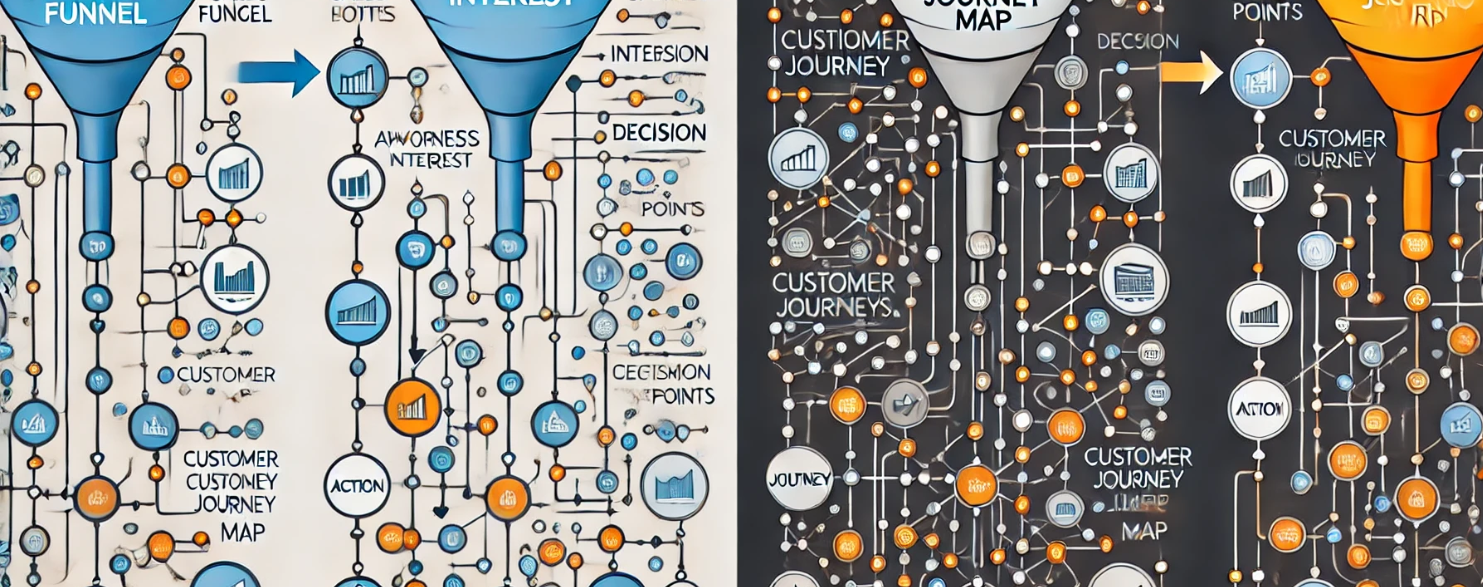In the competitive world of business-to-business (B2B) sales, having a well-crafted go-to-market (GTM) strategy is no longer optional—it’s essential for survival and growth. As markets become increasingly complex and buyer behaviors continue to shift, companies must adapt their approaches to stay relevant and effective.
This article explores the evolution of B2B go-to-market strategies, presents a comprehensive framework for success in today’s landscape, and offers insights into emerging trends that are shaping the future of B2B sales and marketing.
The Changing Face of B2B Sales
Traditional B2B sales models have long relied on a linear funnel approach, where leads are systematically moved through awareness, consideration, and decision stages. However, this model has become increasingly outdated as buyer journeys have grown more complex and non-linear.
Mark Johnson, VP of Sales at TechInnovate, explains: “We used to think of the sales process as a straightforward path from lead to close. Now, we’re dealing with multiple decision-makers, longer sales cycles, and buyers who are more informed than ever before. The old playbook just doesn’t cut it anymore.”

This shift has been driven by several factors:
- Digital transformation: The rise of digital channels has fundamentally changed how buyers research and evaluate products and services.
- Increased competition: With more options available, buyers have become more discerning and less loyal to specific brands.
- Information abundance: Buyers now have access to vast amounts of information, often conducting extensive research before ever engaging with a sales representative.
- Stakeholder complexity: B2B purchase decisions increasingly involve multiple stakeholders, each with their priorities and concerns.
The Modern B2B Go-to-Market Framework
To address these challenges, forward-thinking companies are adopting a new, more holistic approach to their go-to-market strategies. This modern framework consists of several key components:
Target Market Identification and Segmentation
The foundation of any successful GTM strategy is a deep understanding of your target market. This involves more than just identifying broad industry categories; it requires a granular analysis of specific segments within those industries.
Dr. Sarah Chen, a marketing professor at Stanford University, emphasizes the importance of this step: “Effective segmentation allows companies to tailor their messaging, product offerings, and sales approaches to the unique needs of each segment. This level of customization is critical in today’s hyper-competitive B2B landscape.”

Buyer Persona Development
Once target segments are identified, the next step is to create detailed buyer personas. These fictional representations of ideal customers help teams understand the motivations, pain points, and decision-making processes of key stakeholders.
“Buyer personas are not just marketing exercises,” says Emily Rodriguez, Chief Marketing Officer at CloudSolutions Inc. “They should be living documents that inform everything from product development to sales conversations and customer support.”
Value Proposition Refinement
With a clear understanding of target segments and buyer personas, companies can refine their value propositions to resonate with each specific audience. This involves articulating how your product or service solves unique problems and delivers tangible benefits to each segment.
Sales and Marketing Alignment
One of the most critical aspects of a modern GTM strategy is the alignment between sales and marketing teams. This goes beyond simple communication; it requires shared goals, integrated processes, and a unified view of the customer journey.
John Smith, CEO of SalesForce Dynamics, shares his perspective: “When sales and marketing are truly aligned, it’s like a symphony. Each team plays its part, but the result is a harmonious customer experience that drives results.”

Customer Journey Mapping
Understanding the complex, non-linear path that modern B2B buyers take is crucial for developing an effective GTM strategy. Customer journey mapping involves documenting all touchpoints and interactions a potential customer has with your brand, from initial awareness to post-purchase support.
Sales Enablement and Training
Equipping sales teams with the right tools, content, and knowledge is essential for success in today’s B2B environment. This includes providing ongoing training on product features, competitive landscapes, and evolving buyer behaviors.
Metrics and KPIs for Success
To ensure the effectiveness of your GTM strategy, it’s crucial to establish clear metrics and key performance indicators (KPIs). These should go beyond traditional sales metrics to include measures of customer engagement, satisfaction, and long-term value.
Emerging Trends Shaping B2B Go-to-Market Strategies
As the B2B landscape continues to evolve, several emerging trends are shaping the future of go-to-market strategies:
Account-Based Marketing (ABM)
ABM flips the traditional funnel on its head by focusing marketing and sales efforts on a specific set of high-value target accounts. This personalized approach has gained significant traction in recent years, with many B2B companies reporting improved ROI and shorter sales cycles.
Artificial Intelligence and Machine Learning
AI and ML are revolutionizing B2B sales and marketing by enabling more accurate lead scoring, personalized content recommendations, and predictive analytics. These technologies allow companies to make data-driven decisions and optimize their GTM strategies in real time.

Sales Automation and CRM Integration
Automation tools are streamlining sales processes, freeing up valuable time for sales teams to focus on high-value activities. Integrated CRM systems provide a single source of truth for customer data, enabling more effective collaboration between sales and marketing teams.
Content Marketing and SEO
As B2B buyers increasingly rely on online research, content marketing, and SEO have become critical components of successful GTM strategies. Companies that provide valuable, informative content throughout the buyer’s journey are better positioned to build trust and establish thought leadership.
Social Selling and Influencer Marketing
B2B companies are increasingly leveraging social media platforms and industry influencers to reach and engage potential customers. This approach helps build relationships and credibility in a more authentic and less intrusive manner than traditional outbound tactics.
Implementing a Successful B2B Go-to-Market Strategy
While the components and trends discussed above provide a framework for success, implementing an effective GTM strategy requires careful planning and execution. Here are some key steps to consider:
- Conduct a thorough analysis of your current GTM approach, identifying strengths and weaknesses.
- Invest in robust market research to gain deep insights into your target segments and buyer personas.
- Develop a clear value proposition that resonates with each target segment.
- Create a detailed customer journey map, identifying key touchpoints and opportunities for engagement.
- Implement tools and processes to facilitate sales and marketing alignment.
- Invest in ongoing training and enablement for your sales team.
- Establish clear metrics and KPIs to measure the success of your GTM strategy.
- Regularly review and adjust your strategy based on performance data and market changes.
Conclusion
The B2B go-to-market landscape has undergone significant changes in recent years, driven by evolving buyer behaviors, technological advancements, and increased competition. To succeed in this new environment, companies must adopt a more holistic, customer-centric approach to their GTM strategies.
By embracing the framework and trends outlined in this article, B2B organizations can position themselves for success in an increasingly complex and dynamic marketplace. As with any strategic initiative, the key lies in continuous adaptation and a willingness to embrace new approaches.
Remember, developing a winning GTM strategy is not a one-time event but an ongoing process of refinement and optimization. By staying attuned to market changes and leveraging the latest tools and techniques, B2B companies can create sustainable competitive advantages and drive long-term growth.
For those seeking additional support in crafting their GTM strategies, pitch deck consultants can provide valuable expertise and guidance throughout the process, ensuring that your approach is both comprehensive and tailored to your specific business needs.





